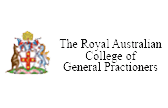Frozen Shoulder

What is frozen shoulder?
The shoulder is made up of three joints that all move together when the shoulder moves. Frozen shoulder occurs when the lining (capsule) of one of those joints becomes very tight and restrictive and that particular joint can become almost completely ‘frozen’. As the other two joints are ok, some shoulder movement is preserved but certain movements (particularly at the end-range and rotational movements) become very limited and painful.
What are the symptoms of frozen shoulder?
People with frozen shoulder notice two main things. Firstly, their range of movement is compromised in a variety or directions like reaching overhead and rotating the shoulder. Secondly that can have brief episodes of very severe pain over the outside of the upper arm if they move their arm too suddenly (this is due to a sudden stretch of the tight joint capsule).
Who gets frozen shoulder?
Anyone at all between the ages of 45 and 65 can get frozen shoulder. It is slightly more common in women, people that have had it on the other side, diabetics and people with autoimmune conditions. Very often there are no identifiable causes other than just ‘bad luck’.
What is the treatment for frozen shoulder?
Most frozen shoulder eventually resolves all on its own but this can take around 12 to 18months on average (the extremes being 4months to 4 years). Ultrasound guided corticosteroid injections (cortisone) can be most beneficial when performed in the earlier, painful and restrictive stages but it is important that this is done by an experienced clinician and it must be delivered into the glenohumeral joint and not the subacromial bursa. Cortisone does not lead to a quick fix in all cases but has a very good chance in shortening the overall duration.
Your physio may be able to give you some ‘isometric’ exercises to help preserve shoulder strength but stretching can be very painful and actually make the problem worse.
Surgery is not at all indicated in the early and painful stages but if there is long lasting restriction after the pain has resolved that continues well beyond the expected time frame, then a surgical capsular release can be considered although this is very very rarely required.
How long does frozen shoulder last?
The average length of time is somewhere between 12 to 18 months.
Is surgery helpful for frozen shoulder?
Surgery is very rarely indicated.





















